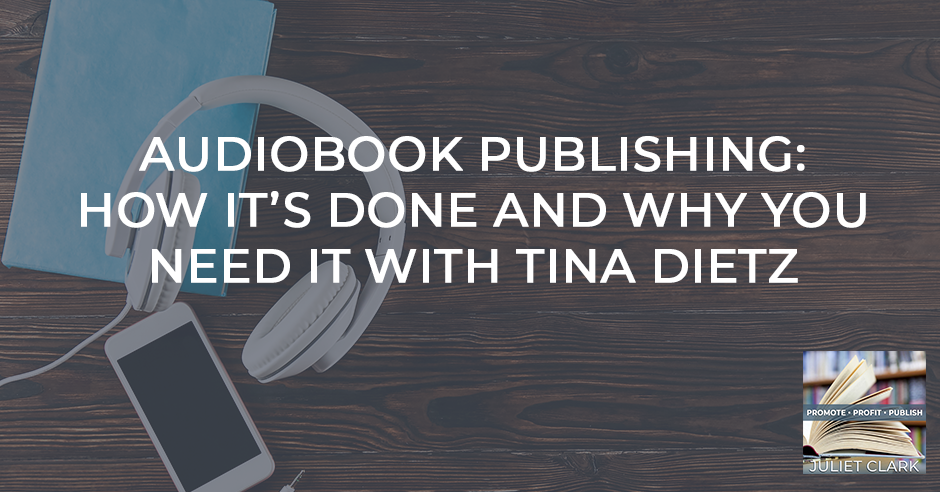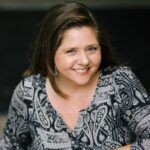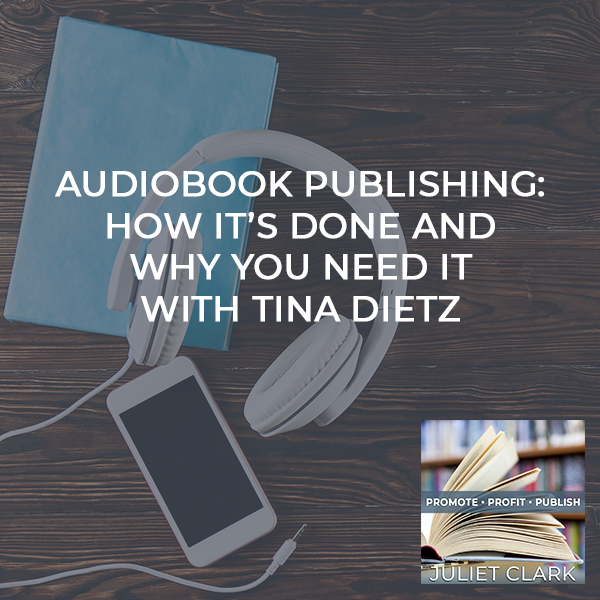
Listening to audiobooks is becoming an increasingly ubiquitous trend across generations. But what goes into audiobook publishing? Today’s guest is Tina Dietz, an award-winning and internationally acclaimed speaker, audiobook publisher, podcast producer, vocal leadership expert, and the CEO & Founder of Twin Flames Studios. In this episode, she gives insight into the process of audiobook publishing and how it helps authors beyond just offering a new format for selling their work. Learn the importance of finding the right voice for your book and knowing the right timing to release it. Tune in to learn all about best practices in audiobook publishing.
—
Watch the episode here
Listen to the podcast here
Audiobook Publishing: How It’s Done And Why You Need It With Tina Dietz
Welcome to the show. We’re going to talk about year-end trends and audiobooks. For those of you who haven’t done an audiobook, it’s time you start thinking about it. Before we get started, I want to send you over to take our Promote, Profit, Publish Quiz. You can find it at www.PromoteProfitPublishQuiz.com. You may not be ready. You may have that book written and you think you’re ready to publish. If you haven’t been building a platform and you don’t know how and where you’re going to publish, and what different models you’re going to use, then you’re not ready. Find out over there if you’re ready.
For those of you who like to see this over on YouTube, jump over to Superbrand Publishing. Subscribe over there at all of these. You’ll see them over there and you can see all these people in person too. They’re credible. I don’t pick up homeless people off the street and pretend. Not that anybody else does but anyway, you can see they are real people.
Our guest is Tina Dietz. She has been on here before. If you’re an avid reader, you’ve probably read about her in the summer of 2020 because we were pushing pod to publish back then. She is an award-winning and internationally acclaimed speaker, audiobook publisher, podcast producer and a vocal leadership expert who has been featured on media outlets, including ABC, Inc.com, Huffington Post and Forbes.
Her first podcast, The Start Something Show, was named by Inc. Magazine as one of the Top 35 Podcasts For Entrepreneurs. In 2016, Tina was the recipient of the Evolutionary Business Council MORE Award. In 2017, she received an award for Outstanding Audio Company from The Winner’s Circle. She’s also a member of the EBC leadership body and a Founding Member of the Forbes Coaches Council. She was also the lead interviewer in the podcasting documentary, The Messengers and featured in the film. She splits her time between the US and Costa Rica where she’s part of the leadership team, building a community of conscious leaders called Vista Mundo. Welcome.
Thanks, Juliet. I’m happy to be back.
The Forbes Coaches Council, we have a book coming out soon that is from one of the members of that as well. I wanted to talk about this because there are so many publishing trends that are pointing to the need for an audiobook now. Some of the trends that have come up in 2020 are hardcovers are up to 24%, trade paperbacks are up to 17%, mass-market is 5%, and the QB board books are up to 20%. Those are children’s books. Authors are looking for multiple platforms and audiobooks are fantastic.
It’s one of the best ways to get your book out there into new markets, for sure.
Audiobook publishing is one of the best ways to get your book out there into new markets. Share on XTell us where are people listening to these? You and I talked about this a little before the show. I do it when I exercise, but where are most of America consuming these?
The vast majority of people do listen to audiobooks in their vehicles. They’re on commutes when they’re out shopping, out on drives, on road trips and things like that. The other places folks listen to are certainly subways, bus trips and all of that as well. They’re doing it generally while doing something else. Exercise is my primary way of listening to audiobooks as well. There are a lot of people who listen while they’re knitting. There’s an entire knitting podcast all around that are being read and talking about audiobooks, as a matter of fact.
Going back to the transportation side of things, Uber drivers and long-distance truckers consume tremendous numbers of audiobooks as well. Even the folks who are sitting and waiting for their child to be done with soccer practice, dance lesson or cello practice. A lot of times, you’ll see folks with earbuds in and they are listening to an audiobook. It has become very ubiquitous across the board, from young children all the way through older adults because it is so accessible.
I remember being at a soccer game when Fifty Shades of Grey came out and none of the moms was clapping. I was listening to Fifty Shades of Grey and they were reading it on the Kindle. I leaned over and I’m like, “What are you reading? You should do it on Audible because then you could watch the game and clap for your kids.” Everybody was silent as the kids were scoring. It was wild. People are now looking at their backlist books as well to get a second wind on them. Are you doing a lot of that?
We always have, as a matter of fact. It’s one of the two big places that folks come to us for audiobooks. It’s to give the book new life. It’s been out for 1, 2 to 5 years. Now it’s time to revitalize that book, give it new wings and life. Sometimes the material is evergreen and it stands on its own. It just needs a second wind. Sometimes they want to do a second edition and refresh the content a little bit. The audiobook is a great way to get that out there to new audiences, and have an excuse and create a different level of product so that it can live again.
All of us in the publishing industry who hang out know that the biggest problem that authors have is getting fatigued with marketing and talking about the same things over and over again, but that’s exactly what it takes to have your book and your platform be successful. You have to keep falling in love with your work over and over again. Audiobooks can help in doing that.

Audiobook Publishing: The biggest problem that authors have is getting fatigued when marketing and talking about the same things over and over again. But that’s exactly what it takes to have your book and your platform be successful.
The nice part is when we self–publish a book, authors have to look at it over and over. They tell me before it goes to print like, “I am sick of this.” The audiobooks are a great way to push it forward and market it at a different time without having to read it again.
If they are listening to their audiobooks, they have a very different experience of their books than if they read them ten times. We hear that pretty much every single time from our authors.
One of the things that have happened in the past is we’ve had authors who while we’re publishing their book, will bring me an audio version that they’ve done themselves. I immediately have to tell them that we’ll never stand up to the standards. Can you talk a little bit about why it’s so important to have the producer? Is a producer a director?
We act as both. Author narration is something we have a deep specialty in and what we’re known for. Because we focus on non-fiction books and subject matter experts who are looking to build authority, probably 70% of our audiobooks are author-narrated and about 30% of our books are professionally narrated. We love doing both and sometimes we even do a hybrid of the two, depending on what’s best for the author. That’s part of the process. You’re talking about this whole technical process of recording an audiobook. Audiobooks are extremely picky.
About once a month, we get files from an outside author or one of our publisher partners coming to us saying, “Could you take a look at these files?” I can count on one hand, over the years, how many files have been ready to go for publishing, even if they’d been produced at a professional studio. If that professional studio doesn’t know how to get your book out onto Audible, they probably don’t know how to record an audiobook because the standards are extremely picky. They do change from time to time as well.
All of those technical specs from the way your software is set up to the room noise that’s available, not all of these can be fixed in post-production either. Not all of it can be fixed without you sounding mechanical. If we have to over-filter your voice, that doesn’t make for a good audiobook. It’s crucial to make sure that whoever you’re working with to produce your audiobook, first of all, never do it alone unless you are an audio professional yourself.
Secondly, you always want to make sure that your technical specs are set up. You want to have it checked by somebody who knows what they’re doing before you start recording. Thirdly, it’s also very challenging to record your audiobook on your own when you’re speaking in an empty room. There’s a humanity and an interaction that comes through our voices when we are speaking to somebody else, and it creates that intimacy that we’re looking for. Trained narrators have the ability to do that in a room by themselves because that’s what they’ve spent hundreds of hours doing and training for.
There’s a humanity and interaction that comes across through our voices when we are speaking to somebody else, and it creates that intimacy we’re looking for. Share on XMost of the authors that we work with, even if they have hundreds of thousands of hours of public speaking experience or podcasting experience, they find that narrating is an extremely different animal. It requires different pacing and different breathing. You are reading at the same time as you’re performing. In most other places, you are not doing that and you are having the technical aspect of making sure that things are correct. All of that put together means that if you’re going to narrate yourself, you do want to have professional help.
I tried this once a very long time ago and big things came up. I was huffing. It is something you hear, and you can’t get rid of that huffing. People don’t even realize that it’s a breath thing. The other thing is voice actors practice breathing and speaking. I know that sounds like, “What do you mean, I breathe and speak all the time?” When you’re reading a sentence, you get going and the pacing isn’t right or your breath isn’t there. You speed up and your voice has to be consistent for mood as well. When you’re doing this day-to-day, people can hear the mood in your voice, can’t they?
One of the things our directors listen for is consistency. If you show up one day at 10:00 AM and you’ve had orange juice and coffee and you’re full of phlegm, your voice is going to sound very different than if you’re recording at 5:00 PM at the end of the day after being on fifteen phone calls. It is going to be different than if you are coming in after a yoga class, completely relaxed with nothing else on your plate.
It’s that consistency that we’re looking for. It is quite an embodiment exercise to bring your voice into a place of your very best self. Speaking and narrating from this place of being your best self, our narrators take that burden off of it. We reflect back to them, “Your energy is starting to ebb and it’s not going to match. Why don’t we call it for the day and we’ll start recording tomorrow or let’s look at the next piece of our schedule.”
Even professional narrators don’t tend to narrate for more than two hours at a time. When we’re doing recording sessions, we often will get a busy entrepreneur or a professor like, “Let’s bang this out in a day.” It’s like, “Nope, you’re not going to be banging anything out.” First of all, we need this to be a good performance. There have been two author narrators that we’ve ever worked with that have had the stamina to go longer than a two-hour session. All of them had a background in professional singing or other kinds of vocal training beyond public speaking.
What are some reasons why people should do this audiobook? I know right now that the trends are the authors want to be able to hold onto their rights. The way you do this, they’re able to hold onto the rights to their book. Is that correct?
We don’t take any rights or royalties from our authors. We want them to be able to do what they want with it. We also partner with a lot of independent, hybrid and traditional publishers. That allows us to be fluid in how we partner with folks and create solutions that work for everybody.

Audiobook Publishing: You have to keep falling in love with your work over and over again. Audiobooks help do that. If they are listening to their audiobooks, they have a very different experience than if they read it ten times.
That’s the same with us. We don’t take any of the royalties of the book rights as well. You guys are probably like, “Why is that important?” It’s important because many of you also have programs, products and services that are wound into that. You could get yourself in a quandary where you can’t produce a program because it’s the book, and somebody else owns the rights to those books. People are looking for expansive distribution. Should they be partnering that audiobook with an eBook or a regular softcover? What are your thoughts on that? Do you recommend that they have all of those?
I do recommend that you have multiple formats of your book. Generally, we’re not producing an audiobook unless there are other versions of the book. The other versions of the book usually come up first. It’s even a little bit challenging with the way that the audiobook industry works to get a simultaneous release of an audiobook with other versions, but that is not a problem. It’s an opportunity. What we coach our authors to do is to stagger their launch. The traditional publishing industry has been doing this for decades.
To keep the interest going and to extend the life of the launch, the audiobook is generally relaunched anywhere from 2 weeks to 6 months. In the case of repurposing books into audiobooks later on, it could be a number of years later. If you’re making it a part of your book launch, we’re not even that interested in it coming out exactly the same day as your other versions unless you have a major media push behind your book. In campaigns like that, we always work that out with the publisher and the author to make sure that the timing works.
We recommend that as well. We usually release the Kindle softcover and then recommend 3 to 6 months later, so you can get that second push on the promotion of it as well. You already mentioned the multi-format strategies. People are also doing it for availability and discoverability. Can you talk a little bit about that?
Audible is the largest publisher of audiobooks in the world. They have about 60% of the market share, and Audible and Amazon are the same company. When your audiobook shows up on Audible, it also shows up generally alongside the other versions of your book on Amazon. There’s a nice fluidity between those two platforms that allows for discoverability. Audible is another search platform for you. If you want to go further than that, your audiobook can be distributed out onto 30 to 40 other audiobook platforms, none of which is as large, but there’s still that discoverability factor and there are other countries. For example, Audiobooks.com is much bigger in Canada. I believe Kobo does more business in Canada around audiobooks than they do in the US.
There are that discoverability factors with other particularly English-speaking countries that you find on some of these smaller audiobook platforms, and it comes back to marketing as well. If you distribute exclusively on Audible for your few months, then you go to non-exclusive, and we get you out on the 30 to 40 more platforms. In your content marketing, your social media, and podcast interviews that you’re in, you can say, “We’re on 30 different audiobook platforms.” You can post about that saying, “We’re on Kobo, Downpour, Scribd. We’re on all of these different places.” That also increases this perception that you, your brand and your message are everywhere.
We are one of the few companies out there that give you your Author Central Account. What that means is we don’t take those royalties. It goes straight to you from Amazon. The clients that we’ve had have been able to load right into those accounts, which means now you can run ads on them as well. That is something that most other publishers don’t give you the ability to do. Working with both of us in tandem on this allows you to be able to control where the flow of your ads go on this as well. If you don’t have the Author Central Account, if you go with a publisher that doesn’t allow you to control that dashboard, you can’t run ads on your book. It is a coordinated strategy that puts the author in control of where they want to spend their dollars, what they want to do, and how they want to do it.
Be open to what will be the best pathway forward for your book and time because it is a time-consuming process. Share on XThat is important to you guys, especially since you’re going to be owning the rights on everything. Use it to your best advantage. Where can we find you if we want to find out more about audiobooks? More than anything, whether you think of the book, you evaluate every single book and the voice, or if they want to read it themselves. You are super honest about it. We have an author who has a great voice. We have an author who was a doctor and she didn’t have the time or the voice for it. If people want everything evaluated, where do they get ahold of you at?
You can reach out to us at TwinFlamesStudios.com and contact us through our contact page. We’ll make a request for you to send us a PDF of your book, which we keep in the strictest confidence. I’m a former therapist so all that ethical confidentiality is baked into me and into our company. You can talk with me. You can also talk with the Head of our Audiobooks, Stephen George. We’ll walk you through your options and what’s going to be good for you.
If you want to narrate your own book, we’ll listen to your voice. We’ll ask you some questions to see if it’s a good fit for you. I would love to make a point about that. This is so important and I want all my author-narrators to know that if you’re thinking about narrating your own book, and you go out to your community and you ask them, “Should I narrate my own book?” What do you think they’re going to say?
Probably, yes.
Anybody who loves and supports you is going to say this type of thing, “It’s your story and message. You have to do it. Your voice is unique.” That is what they’re going to tell you. When you think about doing your audiobook, I want you to be thinking about being open past those people who are your fans. Be open to what the industry is going to tell you. Be open to what is going to be the best pathway forward for your book and your time. It is a time-consuming process. We will make you sound phenomenal but we can’t always do that 100% of the time. We are going to be honest with you about your best pathway forward. If a hybrid version of your book or a professionally narrated book of your version is going to be better, we’re going to guide you in the right direction.
Could you go over briefly when you say, “A hybrid?” Do you mean you read your foreword and somebody else reads the book? I’ve seen some of those out there.
I lovingly refer to this as a Tony Robbins sandwich because he did all of his audiobooks that way. They picked the narrator for him that had nothing in common with him and I never understood that. We have certain circumstances where it works better for the author either to do the introduction or the conclusion. We usually create a little context around why they picked having a narrator do the rest of the book. There’s a little bit of personal content in there.

Audiobook Publishing: If you’re making an audiobook part of your book launch, we’re not interested in it coming out the same day as your other versions.
Sometimes we do what’s called an interview with the author bonus chapter. That’s where the book is professionally narrated but there is a fifteen-minute bonus interview conversation with the author at the end, and that helps the author. We have an author right now who is incredibly energetic and he speaks so fast. There’s no way he could be a narrator for his book. We tried to slow him down and it didn’t work. He finally said, “You guys are right. Let’s do this in a different way.” He’s great on podcast interviews. He’s wonderful being off the cuff so it’s a great combination for him. We’re finding him a narrator that has that energy, enthusiasm and gravitas that he has, that he is going to be able to narrate the book in a way that people can absorb without being overwhelmed by the speed.
I have a question about that. I think I mentioned last time we talked that very long time ago, I was listening to a Jackie Collins book. She got on and started narrating one of her characters. She had a horrendous list and it was so distracting. When you were talking about the Tony Robbins book, you said, “I don’t know why he chose that person.” Isn’t it important to choose someone that people expect that’s in alignment with the book?
I feel strongly about this. A lot of the traditional publishers who had taken over the audiobook process, and I will say that it’s less common now than it used to be, when somebody has signed their audio rights away and their audio is being produced, oftentimes without the author even knowing about it, there’s no creative purview from the author. There’s no consideration for a good energy match between the author and the narrator.
We feel very strongly that when we work with narrators, the narrator needs to be able to embody some of those key vocal characteristics that the author has and also needs to be believable. We even vet our narrators when we’re looking for somebody to say, “Do you have a background in this material? How are you relating to this personally?” It’s an important audition process that we go through and we generally get about 200 auditions per book. We curate that down to about 6 to 10 of our top picks to help the author make those creative choices. That creative choice is always ultimately up to the author. They have to be comfortable.
Probably in 2015, I interviewed Dorie Clark when I had the podcast, Ask Juliet. She did not know exactly what you talked about. She didn’t know that she had signed away her first book. When I listened to the book, it didn’t match her and I asked her about it. Of course, she’s not going to say, “This happened and damn them for signing them away.” When she read her second book, it was more intimate, more believable, and in alignment with what she was teaching. It makes a huge difference when you’re listening.
This has been amazing. I hope you guys got a lot of information out of this. Tina told you where to find her. When you’re over there taking that quiz and you’re thinking about, “How am I going to release the book? How am I going to put my budget together for a multi-platform launch?” She’s someone you need to talk to and find out what is that audio piece, what does that usually run, and have them evaluate the book and give you some feedback. Thank you. This was great.
Thank you, Juliet. I appreciate you having me on. It’s good to be back.
Important Links
- www.PromoteProfitPublishQuiz.com
- Superbrand Publishing – YouTube
- Tina Dietz – previous episode
- The Start Something Show
- Forbes Coaches Council
- Audible
- Audiobooks.com
- Kobo
- Downpour
- Scribd
- TwinFlamesStudios.com
- Ask Juliet
About Tina Dietz

Tina Dietz is an award-winning and internationally acclaimed speaker, audiobook publisher, podcast producer, and vocal leadership expert who has been featured on media outlets including ABC, Inc.com, Huffington Post, and Forbes. Tina’s first podcast, The StartSomething Show, was named by INC magazine as one of the top 35 podcasts for entrepreneurs.
In 2016, Tina was the recipient of the Evolutionary Business Council MORE award and in 2017 she received the award for Outstanding Audio Company from The Winner’s Circle. She is also a member of the EBC leadership body and a founding member of the Forbes Coaches Council. Tina was also the lead interviewer in the podcasting documentary “The Messengers” and featured in the film.
Tina splits her time between the US and Costa Rica where she’s part of the leadership team building a community of conscious leaders called Vista Mundo.









Leave A Comment